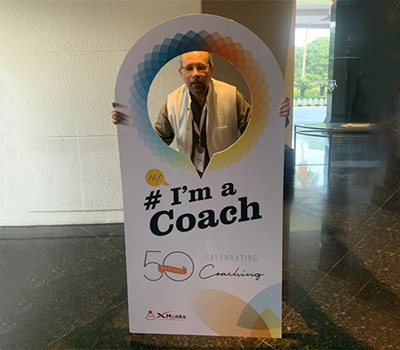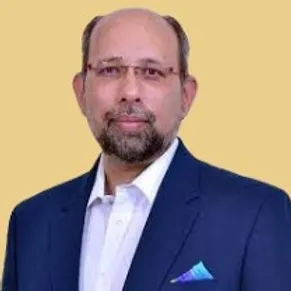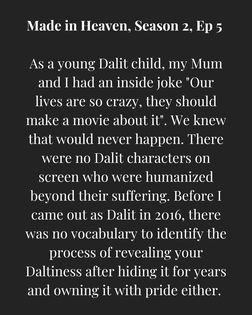Making India the Coaching Capital Of the World
I recently had the opportunity to attend an event celebrating Erickson Coaching’s 50th batch of certified coaches in India. As part of this day-long celebration of Coaching, there was an interesting panel discussion on “Making India The Coaching Capital Of The World”. Anchored by Gaurav Arora, the country head of Erickson India, the panel had Suresh Tripathi, CHRO Air India, Yuvaraj Srivastava, Group CHRO, Make My Trip, and Bhushan Kulkarni, VP L&D, ICICI Lombard General Insurance, sharing their views on this topic.

Breaking out of the corporate cocoon. Taking coaching out of the corporate cocoon and bringing the gift of coaching to society at large seemed to be a common theme that emerged. Coaching is just beginning its journey in India and boardrooms. The big bosses have embraced it and understand the benefits it can bring to leaders and companies. If India is going to emerge as a coaching capital of the world, it needs to become far more accessible and available to a broad cross-section of society.
Suresh Tripathi, CHRO Air India began by saying “Coaches who are established, who want to impart knowledge by helping others can benefit society at large.” He went on to say “The process of becoming a coach is a great change for the individual. It puts you in a framework of understanding yourself.”
Tripathi felt that if every person understood themselves better, the country would benefit.
A hybrid world needs more coach-like leaders. Bhushan Kulkarni, VP of L&D, ICICI Lombard General Insurance talking about the impact of coaching on culture began by defining culture as “the way we do things around here”. He elaborated that coaching is essential for managers and leaders today given the virtual and hybrid work environment. Reviewing work is not a sufficient way to manage and lead teams anymore. He put a spotlight on bringing in the elements of coaching to the new workplace and shared three things that could help:
-
The shift from ‘TELL to ASK’: The art of asking vs telling, underlines the importance of asking powerful questions.
-
The art of listening: Good leaders must learn how to listen well.
-
The 10-second pause: Take a short break to acknowledge another person.
Based on his experience Kulkarni cautioned the audience that this is not an easy journey to take an organisation on. In the initial few months people were keen to try out these new behaviours, but very soon went back to their more familiar TELL mode.
Kulkarni also spoke about how to get coaching beyond the corporate world. He felt that other professional communities like lawyers and medical professionals would benefit hugely if they could be introduced to the benefits of coaching.
Is it a demand-side or a supply-side game? The panel also debated on whether we need more certified coaches or more clients. The answer that emerges is that we need both – the demand for professional, certified coaches is growing and to ensure the audience they serve continues to also grow, we must widen the client pool.
Yuvaraj Srivastava, group CHRO, Make My Trip brought in the analogy of how India had reclaimed its rightful place as the yoga capital of the world with International Yoga Day and the celebration of the same at scale. He felt that this needs to be replicated for coaching; hence, a grassroots-level approach is required.
“We need more coaches and coaches. We need to go to schools and help students find what they want to do. Starting from the schools' was Srivastava's point of view, if we wanted to scale coaching in the country.
Tripathi wrapped up the discussion by saying latent demand for coaching exists and like yoga and ghazals have become more mainstream coaching could also find its place “We need to simplify and make coaching accessible to everyone” is the note he ended on.
Overview of certified and accredited coaches in India vs globally
Here is a quick snapshot* on the number of certified and accredited coaches in the world and India and how we compare to a few other countries: There are currently 50,065** coaches in 143 countries and territories who hold one of three ICF Credentials.
• 26,426 Associate Certified Coaches (ACC)
• 21,499 Professional Certified Coaches (PCC)
• 2,140 Master Certified Coaches (MCC)
In Asia, there are 7389 ICF credentialed coaches and the top three markets are India, China, and Japan.
-
India has 1,781 credentialed coaches of which 909 are ACC; 778 PCC and 79 MCC.
-
China has 1,409 credentialed coaches of which 519 are ACC; 852 PCC and 31 MCC.
-
Japan has 1,114 credentialed coaches of which 566 are ACC; 479 PCC and 68 MCC.
The current coaching capital of the world (in terms of the number of accredited coaches) is the United States of America with a tally of 18,516 coaches of which 10,193 are ACC; 7,530 PCC and 721 MCC.
India clearly has some miles to go if it is to become the coaching capital of the world. We must keep our feet on the ground and aim for the stars. As a good coach told me, it starts with having clarity on the goal. The doing and the being will follow, one coaching conversation at a time.
Nikhil Dey is a certified ICF coach and founder of soul2solecoaching. He is the first recipient of the ICF India Coaching Excellence Rising Star Award.
*As per the International Coaching Federation (ICF) Professional Coaches Membership and Credentialing Fact Sheet, August 2023.
**This number is subject to frequent change.






.webp)




.png)
.png)

Comments List